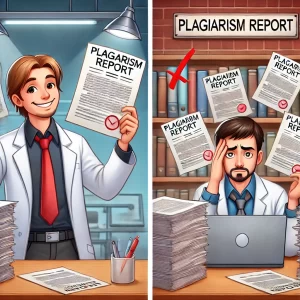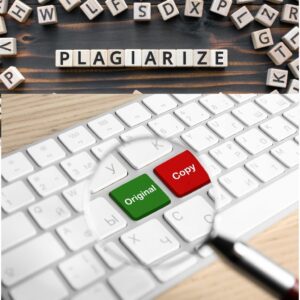How Universities Are Addressing AI and Plagiarism Concerns
AI Plagiarism Changer software is an application that uses machine learning algorithms to rephrase and rewrite text to avoid plagiarism. It can help students, teachers, and researchers write original content without copying from other sources, which helps prevent academic misconduct like cheating and plagiarism. But, these applications are not fool proof and can still be misused by some users, causing ethical concerns for the entire educational community.
Some universities have already taken action to address these ethical concerns, such as by clarifying how and when students may use these applications in class. Others have adopted guidelines and policies that help promote responsible use of AI.
Clearly Outlining Expectations
Instructors can assist students. They should clarify expectations early. This is important in the syllabus. Just as instructors give rules about asking for help, students must understand when it is okay to use AI in their work. They need clear guidance on this matter. Clear communication helps eliminate confusion. It prevents students from accidentally breaking policies. They won’t unwittingly use AI to cheat.
Helping Students to understand their assignment in better way
Universities are paying more attention on how faculty approach assignment design. Instructors can create effective assessments. They should focus on student learning outcomes. If assessments are not just multiple choice or rote tasks, instructors may worry less. Students are less likely to rely on AI for help. Instructors can use the extra time from AI tools. They can focus on developing and implementing authentic assessment.
This takes more time for the instructor. However, it helps them create and test ways to assess students’ understanding. These methods align better with learning goals. They also encourage higher-level critical thinking. This would help them make tougher assignments. These would need more creativity. This might make AI less appealing for help with coursework or exams.
Changing Norms on What Is Considered Plagiarism
Addressing academic integrity and ethics in the classroom requires more than AI technology. A comprehensive approach is needed. Instructors, staff, and students must be involved.
Faculty should set clear guidelines. They need to consider why students engage in dishonest behaviors. They should also find ways to help students avoid these actions. Some students feel pressure. They want to do better than others. This can lead to unethical choices. They might take shortcuts on assignments and exams. Some might feel the urge to cheat. They want better grades. They hope to get into a top program.


